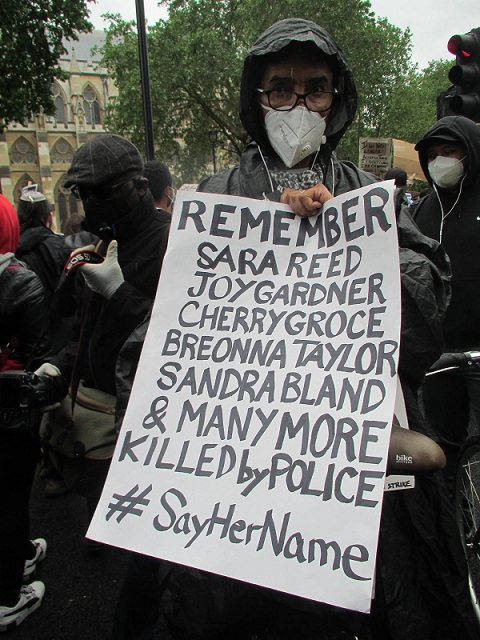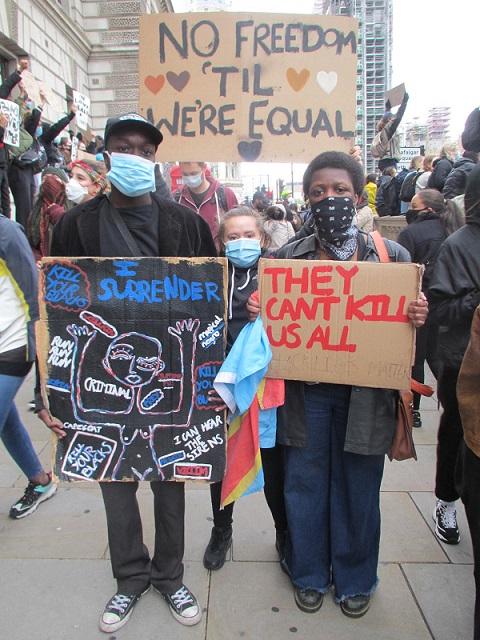By Dawn M. Sanders
I spent my formative years in the 70s and then my teenage years in the 80s, sussing out who stood where in the world. From as far back as I can remember, I knew I was different, set apart, along with a lot of kids I went to school with. Mainly the ones who were black or Mexican. It was the throw back years. A post segregated era which had not yet quite recovered from it’s choke hold on minorities.

I can remember still hearing, when I was about 6 or 7, snippets from Martin Luther King Jr.’s I Have a Dream speech. My mother, uneducated, with 5 of us to raise on her own and with mental health issues, didn’t exactly teach or encourage us to question anything or challenge who we were. She was half Mexican and German, raised in a dysfunctional home where, America was great – even if her brother, an uncle I never had, died in the Korean war.
On the school bus, I remember the kids of colour tended to sit in the back, the Mexicans always sat with siblings or with each other and the white kids, with their friends. Everyone still ‘kept to their own’ that’s just how it was. I tended to float, going where there happened to be a free seat or who would let me into their clique for a short time. As I grew up, I always felt I could identify most with the kids of colour, whether they were black or Mexican, they were always poor like me. The kids who were black always lived in apartments and seemed to do the worst in class – having the worst grades. I was different, I had to work in different ways in class and, not only was I poor too, I was that blind girl, so I may as well have been another race.
By the time I was in high school, my best friends were black. The tall, good-looking guy I had that unwavering torch for, during our entire time at high school, was Mexican, but why should I care. It just didn’t matter to me that, my best friend turned out to be Junior, as we all called him, was black. My friend Caron who came and spent nights at my house was also black. When I was twelve, one of my first boyfriends was a black boy who, when my mum found out saying, ‘is he black’ and I said yes, she freaked out and made me break up with him. My school was really mixed, so when I stupidly told people why I couldn’t go with him anymore, I was shunned even more, but I didn’t care – what difference did it make especially, when my mother was half Mexican herself – I thought even then, she was a hypocrite.
We were raised to supposedly ‘be white’ think white and stick to the white kids, but I never complied. For me, the white kids were usually snobs, made sure I knew they were too good for me and when we lived on an air force base for a year, before my adoptive dad retired, it was the white families who always had the nicest houses, the most expensive furniture, as their families had travelled the most. I never questioned it of course, it’s just the way it was…
When I left home, finished high school and started living with flat mates, the distinctions that were always there, seemed that much more pronounced. I got a job in fast food where, most of the dudes who worked in the kitchen flipping hamburgers were Mexican immigrants. My white friend and I worked the drive through and of course, the manager was white.
My world seemed to be as ‘normal’ as it could have been, what friends I had were just friends no matter their race, but my closest were still the ones I had left back in Texas after I went back to my home state of California. I had drifted from my high school friends and everyone I knew was white and middle-class. With hind sight, at that time I knew nothing else and, if I know of or was acquainted with anyone of colour, they seemed to move in a different world to me.
Then just before I immigrated to the UK, the Rodney King incident rocked LA and everywhere. All of those inequalities I grew up with somehow came flooding back. Coming to the UK, for me, inequality deepened. Of course I had always had people react to me differently as a kid, ‘what does she want’ the waitress in my mum’s favourite restaurant would say. “ask her” my mother would say, looking away defiantly, so they would have to look at me and speak to me. I was always that little bit lesser than, tainted, of a ‘different ilk’ as my friends of colour had been at school.
Despite my mum pushing me to be independent, she often talked or treated me ‘different’ so then my siblings would follow suit. My mother would say things like: “In dealing with Dawn you have to make it really simple…” I don’t know at what stage or why, but a lot of my family were inherently prejudice, despite us being mixed race. My sisters, my cousins – they would often point out a person of colour and say the N-word, it somehow made my blood quietly boil, what/where did the hostility come from?
Coming to the UK brought it’s own set of identity issues for me and all the sudden I seemingly assumed this under-class position in the pecking order. The first person I became really friendly with in London, was Aisha, of Nigerian descent . We worked in the same grotty phone bank in London’s east end. As a naïve 24-year-old taking charge of my own world and conquering my long-standing stifled voice, having gotten away from family. The spinster-type middle-aged women running the YWCA hostel in central London where I first lived, had issues with me walking up and down the stairs, despite not having bad legs. There were all kinds of Chinese whispers going on I eventually found out about or conversations spoken behind-closed-doors. I had not even checked upon immigrating, how things were, how were people with those of us who are ‘different’ and have additional needs and barriers to climb through? Backwards! That is how they are – and in my first house share I was made to often feel like a leper when people stopped conversation when I walked into a room.
As i encountered “are you alright” in a British patronising sing-song voice, on a daily basis, I used to think, ‘so do I have a wort on my nose’ why are these people forever asking if I’m alright? I know now, it really is, a British thing, but other factors were suddenly penned upon me, a label of profound punch I had never been saddled with – ‘dis-abled? When someone first referred to me as this, I was incensed!
Some times people would come up to me as I walked to the bus stop: “can you manage, can you manage?” The core of my inner gut continued to smoulder and burn that bit hotter with every patronising, belittling subordinating slight.
My time squatting in an old disused pub with a bunch of other misfits was a sudden change from the flat I had been sharing with a French national in North London suburbia.
There was a guy who used to hang around the second squat I was landed in. We quickly became friends and, I was as indifferent to the fact he is of colour, as I was to the bathroom wall in the squat. We used to go to all the London free festivals together in the 90s and I’m sure on more than one occasion he would tell me, we’re getting funny looks on the bus.
There was a rave in the squat one Saturday night, people were getting ready to go to the Newbury bypass protest – I wasn’t asked if I was interested. I remember a lass walking up to my mate and asking: “Are you running her into walls?” I thought, ‘whatever…’ I was often shocked he wanted to hang with me. I was always the odd one outside any clique in the squat, on whatever scene was going on at the time, just like back at school.
He often spoke of his own ostracism within London life. He describes: “Having once been stopped and questioned at Luton Airport as I walked to the departure lounge for a flight to Cyprus in 2012; the airport security lady saw a black man with a beard, Afghan hat, sandals, (mildly) tatty corduroy jacket, granddad shirt and thought, “terror suspect”. It came as a shock to her that when I opened my mouth to reply, Finsbury Park, North London -where I was born, came pouring out. Her cause also wasn’t helped by my girlfriend marching up to her and saying: “Can’t you see he’s trying to get on a plane?” The airport security woman apologised profusely to me. “Ooh, please don’t apologise – you’re only doing your job, after all”, I replied. My initially straight expression became a knowing smile and Her face went bright red. She knew that I knew WHY she came up to me and no-one else. Why create a scene for? Sometimes, just an inch or two on your beard can make all the difference between inconvenience and aggravation, believe me.” That scenario was a drop-in-the-ocean for my long-time friend, L from London.

As the years have flown by of course that silent, yet ever-present noose has tightened. The free festivals of the 90s have long since gone. People with additional needs still are barely considered worthy of working, let alone given the opportunity to be movers or leaders within the pecking order. For people of colour? Well, it seems the old throw back years are back, news commentators and questioning minds on social media keep asking, how did we get here? Yet, we never left. In fact, western society was neatly whitewashed during the 80s and 90s. When capitalism truly raised it’s head and the Reagan/Thatcher years made damn sure that, even though microwave ovens and answering machines defined a new wave of materialism and status, it all of course depended on what colour your skin was or, if you had arms and legs to either sink or swim.
With the dawn of the new millennium, a quickening regression defined a new era of cultural polarisation.
Lately with the latest spate of killings by the police in the US of those of colour, parallels are being drawn with the tumultuous times of segregation and assassinations of the 60s, for daring to dream with the wrong skin colour, burning draft cards and so on.
Yet, today’s dynamics are worse, much worse! On either side of the Atlantic, we have populist leaders who wear their narcissism like coats of armour. With every turn of the decade, there is a deepening of divisions, be it class or race.
Martin Luther King had a dream; Steven Lawrence had dreams, as do the countless unreported, rarely acknowledged, dreams which get ripped from the hands of people with additional needs: a job without equal consideration, a relationship, because, because or even volunteering. Yet at the end of the day, we are all related, some of us different, but equal in creation and the evolution of life.
© 2020